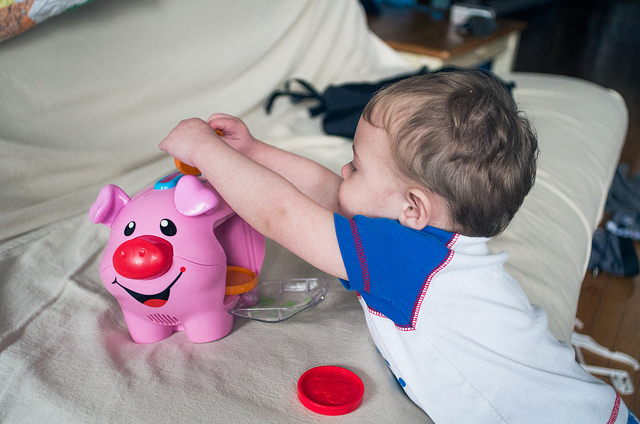Pigzbe is a “digital piggy-bank” that uses a “family friendly” cryptocurrency to teach kids how to save their pocket money.
What it means: If you’re a kid reading this, here’s a chance to check if your parents are paying you a fair market rate (i.e. what most people would be willing to pay) for your pocket money or not. The UK average, according to a research group called Childwise, is £11.20 a week. (Which seems a lot - it can’t be just us that used to get like a quid a week, right? #90sKidsWillRemember).
With around 19 million under-16-year-olds in the UK, that means a potential piggy bank balance of around £11 billion each year. No wonder some companies want to get their hands on it.
Enter Pigzbe, which is (a) still on the ‘using z instead of s makes you down with the kids’ bandwagon and (b) trying to convince parents to turn those pocket money pound coins into Wollos, the cryptocoin (aka virtual currency) Pigzbe has created. Kids can save their Wollos or spend them at Pigzbe’s as-yet-unspecified partner businesses and shops. Pigzbe says it can teach kids “positive earning, saving and spending habits” in a safe and easy way.
What isn’t prominently mentioned in their marketing is that Wollos, like all cryptocurrencies, can go up and down in value depending on how much users think they’re worth. That’s true of real-life currencies too (you can read our handy explainer about this here) but the difference is powerful groups like governments and central banks keep an eye on real-life currencies and intervene if it looks like their value is ricocheting too much. Cryptocurrencies, in contrast, have been known to fluctuate so wildly that a single cryptocoin was worth $19,783 one year and $750 the next.
Still, if your kid already rounded off 2018 experiencing the crushing disappointment that Santa isn’t real, perhaps 2019 should be the year you shatter their dreams that financial markets and our money operates in a predictable, considerate or understandable way. (Kidding. Kinda.). We definitely like the idea of kids having more chances to talk about the economy, though.
Read our explainers on cryptocurrency and exchange rates.

